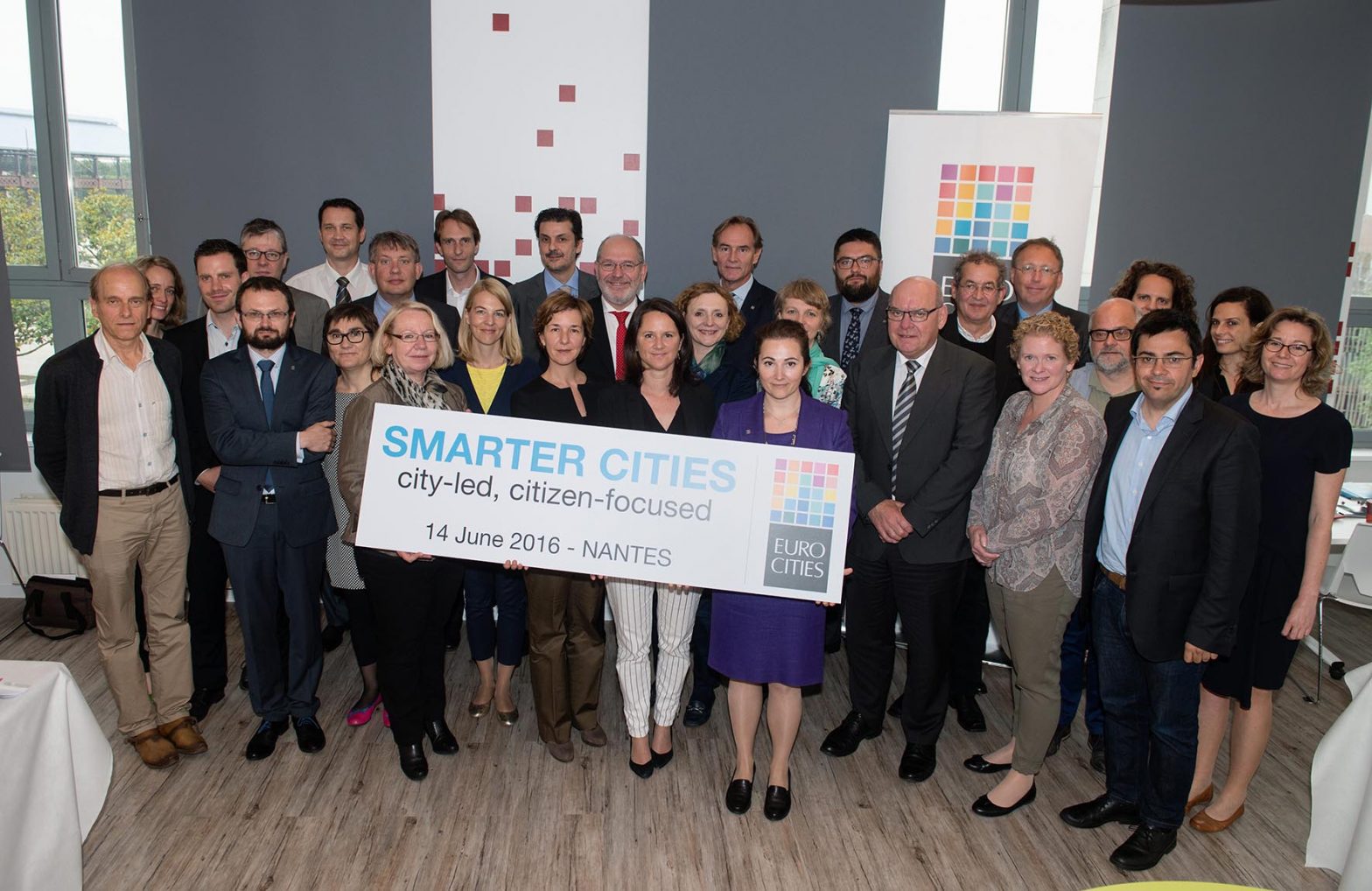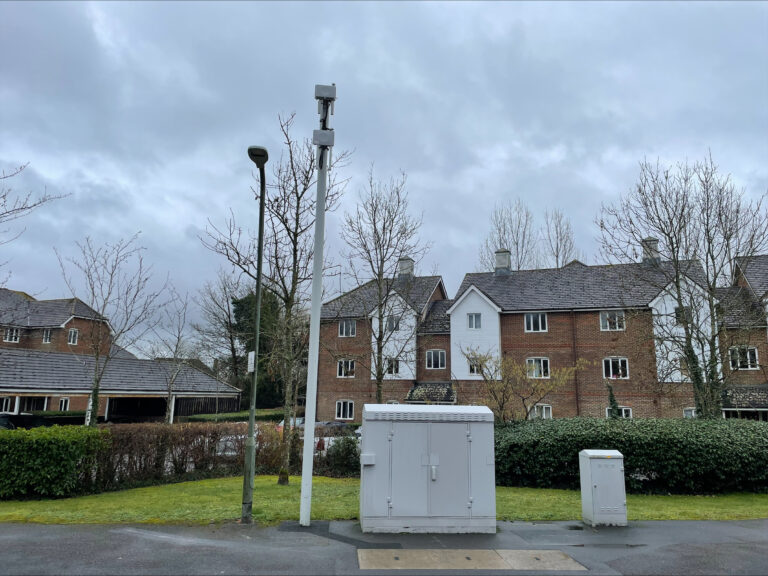
Photo: NM019416
How EUROCITIES is helping members become smart cities
02 November 2016
by Jonathan Andrews
Jonathan Andrews asks how the European city network has helped members become smart cities
EUROCITIES connects smarter cities around the EU by bringing together over 130 cities to exchange, share and learn from each other on smart city developments at policy, project and governance level, with the overall goal of improving their citizens’ quality of life.
This work is underpinned by several EUROCITIES-led initiatives, including the Green Digital Charter and its network of 50 signatory cities, and EU-funded projects, such as CITYkeys and SHARING CITIES, which are supporting cities with developing smart city strategies and solutions.
Smart citizens are at the heart of the smart city process
For EUROCITIES, improving citizens’ quality of life, offering quality jobs, creating a more equal and inclusive society, at the same time becoming more sustainable, is at the core of smarter cities.

“It’s important to note the citizens’ dimension in our approach,” explains Nikolaos Kontinakis, Project Coordinator, EUROCITIES. “We started using the smarter cities and citizens terms after 2010. A successful smart city will reach out to, empower and engage with its citizens to capitalise on their potential as co-creators of urban solutions.”
One example is the Green Digital Charter. Originating from member city, Manchester, in 2009, the challenge was how to better use ICT to deliver energy efficiency and climate targets. During its lifetime it has grown to encompass wider and more up-to-date objectives.
“In 2016, the charter aims to network cities so that they work together for the deployment of ICT and smart solutions that will benefit, first of all their citizens,” adds Kontinakis. “Until now, 50 major European cities have signed the charter, proving that it’s really one of the important urban initiatives related to smart city development.”
Technologies as key enablers of smarter cities
According to Kontinakis, technology is a means rather than an ends and can be used to combat a raft of problems cities are facing.
“One of the most attractive smart city promises is that cities will be able to deliver more with less,” he says. “You need also to take into account that practically speaking smart cities need to be combined with concepts like the sharing economy and the circular economy if we are serious about implementing a sustainable future.”
EUROCITIES realises that becoming smarter is about using a combination of the most advanced engineering technologies and simpler, low-tech solutions from Wi-Fi lampposts to bike lanes and vertical farming.
Time to rethink governance
Public administrations, citizens, businesses and research institutes are part of the same urban ecosystem. Cooperation, co-creation and partnership are the key elements for transparent governance at local level. This quadruple helix model, which brings together citizens, knowledge institutes, businesses and local government, can provide a guiding governance structure for the smart city, putting all partners on an equal footing.
Within city structures, EUROCITIES works with both CIOs and mayors, although this has changed in the last six years as the concept has evolved.
“We increasingly work with CIOs and experts,” says Kontinakis. “This trend follows what we have observed in city structures: as more and more smart city-related departments are created, more and more experts and innovative thinkers are recruited by the cities.”
Partnering with the European Union
EUROCITIES has been involved since the outset of the European Innovation Partnership on Smart Cities and Communities (EIP SCC).
“We were part of the high-level group that set out the guidelines for the EIP SCC,” explains Kontinakis. “We follow and participate in most of its action clusters; we use our meetings and projects as focal points for the EIP’s results; and we have actively encouraged and helped as many of our members as possible to participate in calls for project proposals related to the EIP.”
Since 2016 the network has led the action cluster on business models, financing and procurement.
“We are the only network of cities that participates in key initiatives for all energy, mobility and ICT, namely the Covenant of Mayors, European Digital Week and the Green Digital Charter,” adds Kontinakis.
Common and open standards
Since its inception, EIP SCC recognised that there was a lack of a genuine European framework of key performance indicators for smart cities and the projects they implement.
“On the one hand, there has been a need for a framework that will be based on existing indicators and measurement methods and, on the other hand, a need for a framework that will treat smart cities strategies and projects as integrated, meaning combining different sectors and solutions in new ways offering better than ever solutions to urban challenges,” explains Kontinakis.
The CITYkeys project came to meet all these objectives. In addition, CITYkeys proposes a performance measurement framework that is based on open data and open interfaces allowing cities and third parties to enlarge, improve or change this performance measurement exercise without the fear of a technology or a provider lock-in.
So far CITYkeys has already delivered its proposal for a set of key performance indicators for smart cities, the datasets that are needed to calculate them but also the architecture of an open framework that a city can build to monitor its progress or challenges.
Now, a number of cities are testing how this framework works together with their existing systems while EUROCITIES is preparing a number of guidebooks about the how and why a city should implement such a performance measurement system.
A city led approach
“The whole smart cities movement was initiated by the tech industry and then taken on-board by academia and high-level policy institutions like the European Commission,” says Kontinakis. “In this context, the biggest achievement, not only ours but of many similar stakeholders, was to pass our message and influence smart city policies so that they become city-led.”
This meant having an offer of technologies and solutions driven by the real needs of the final user, namely the cities and being citizen-focused, resulting in cities that are more sustainable, equitable, better to live
and work in and where citizens have better opportunities and can participate more in the decision-making.
Cities are catching up with other key innovation stakeholders, like industry and academia. Some cities have set up technology departments, innovation units, data analysis offices and recruited innovation experts.
Since the onset of the smart city ‘revolution’, EUROCITIES has helped members to open up data, create
living labs and innovation hubs, promote innovation procurement, and establish triple and quadruple helix cooperation.











